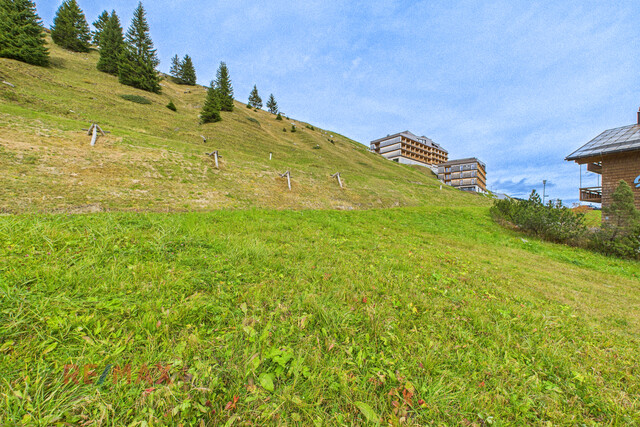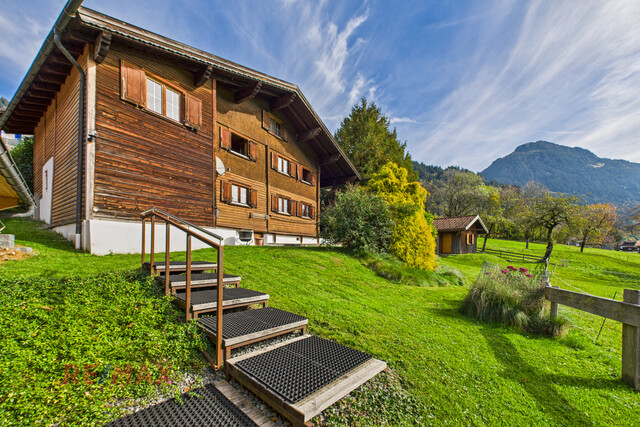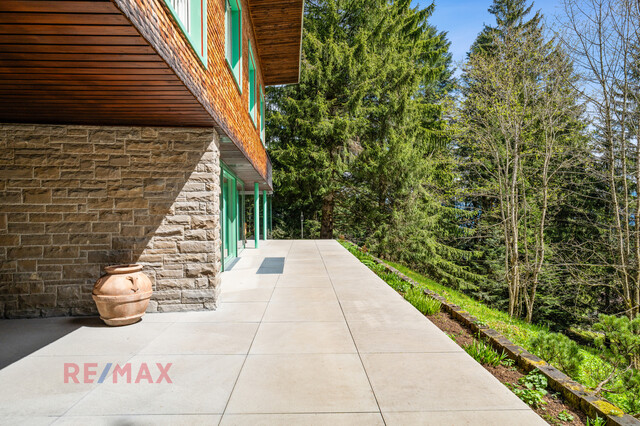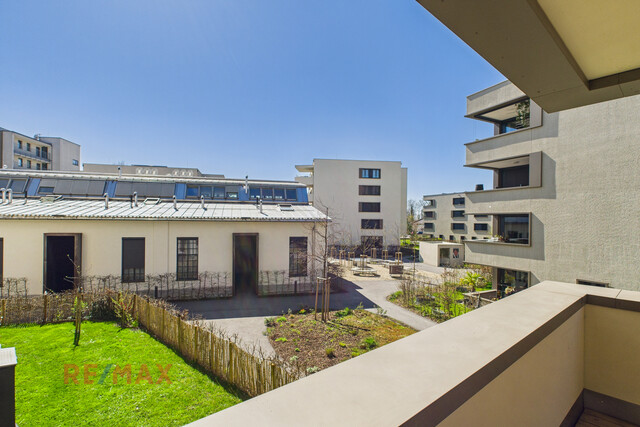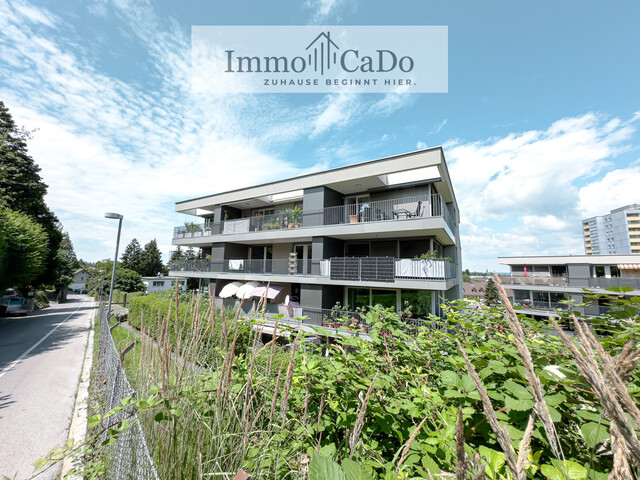New Teachers Hardly Feel Prepared for Everyday School Life

Poor grades for the current teacher training: Only 42 percent of new teachers at middle schools and lower secondary schools feel well prepared for teaching practice after graduation, according to the latest edition of the OECD teacher study TALIS 2024. In 2018, it was still 79 percent. Austria is currently well below the average of the 54 participating countries and regions (61). Criticism has been around for a while, and the training will be restructured in 2026.
Austria's Teacher Training Fails in Practice
Although a total of 72 percent of new teachers stated that the quality of their training was generally high, among those who completed their studies no more than five years ago, it is significantly less (63).
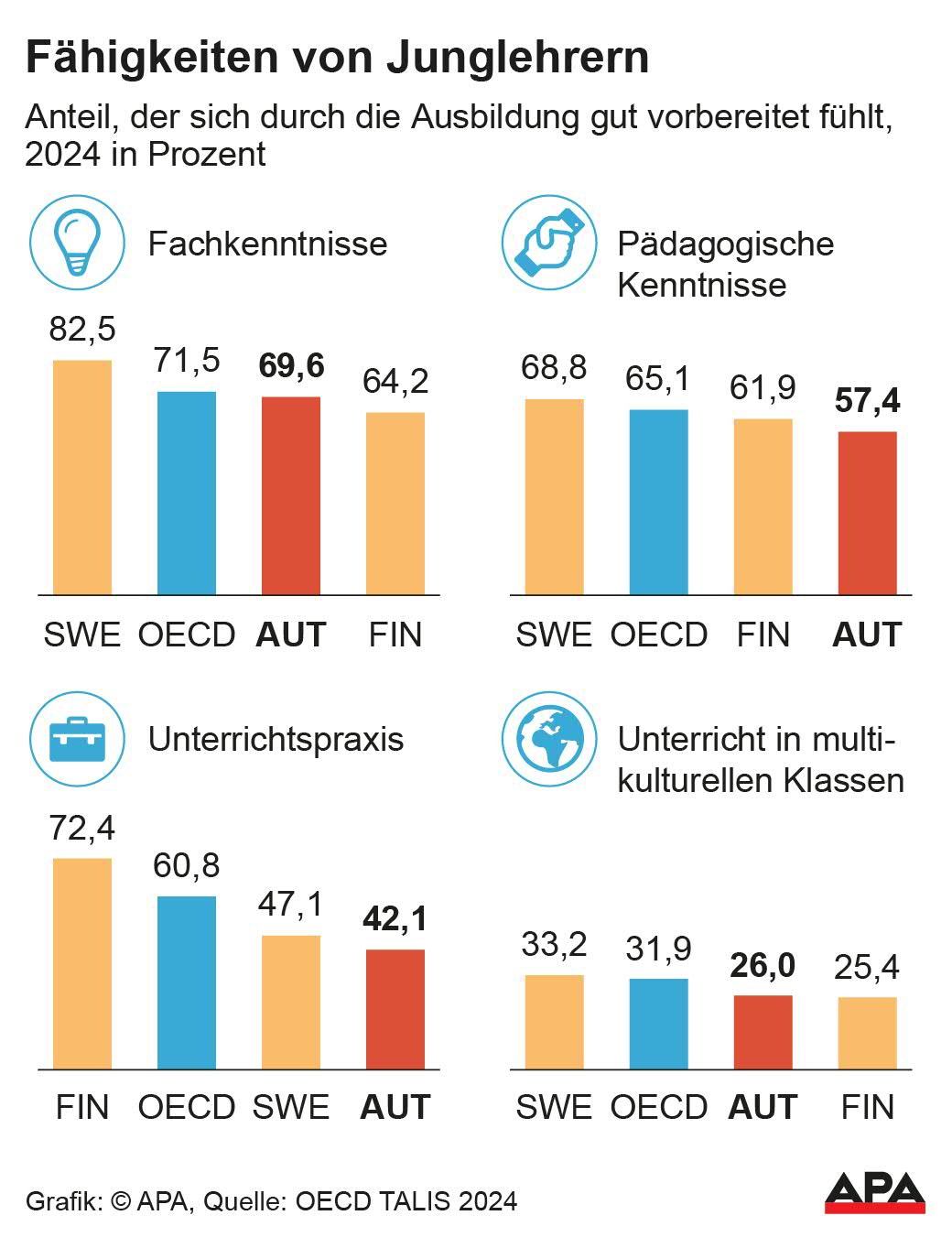
More graduates feel well prepared in terms of subject knowledge than in the last survey (almost 70 compared to 64 percent). The numbers have also increased in terms of subject didactics and pedagogy, but still, only just over half of the new teachers are satisfied with their training in these areas. When it comes to using digital tools for teaching, only 43 percent currently feel well equipped, but in 2018 it was significantly less at 33 percent.
Only a Quarter Feels Prepared for Multilingual Classes
Regarding teaching children with different mother tongues and from different cultures, only 26 percent feel well prepared. There has been no change compared to 2018 - and this despite the fact that over a quarter of students in this country now state a first language other than German. According to TALIS, every fourth teacher surveyed in Austria teaches at a school where more than ten percent of students have problems with the language of instruction.
63 percent of teachers report that more than ten percent of students at their location have a migration background - that is 12 percentage points more than in 2018 - and 80 percent work in a school where at least one percent of students have a refugee background. This is the highest value among the TALIS participant countries and regions in both cases, on average it is a quarter or half of the teachers.
Teacher Training to be Reformed by 2026
Meanwhile, the proportion of teachers at schools where more than ten percent of students require special educational support is significantly lower than in other participant countries (eight percent compared to 46 percent). However, in Austria, there is a separate school form for children with disabilities, the special schools (teachers from these were not surveyed, note).
With the academic year 2026/27, teacher training for secondary education (middle school, high schools, vocational middle and higher schools/BMHS) is to be reformed. Then, mandatory basic modules in German as a second language and inclusive pedagogy will be required for all students. The training should become more practice-oriented, and the master's degree should be more compatible with working life and streamlined, and the training will also be shorter. Instead of four years of a bachelor's degree plus two years of a master's degree, there will be a three-year bachelor's and a two-year master's program in the future.
Wiederkehr Refers to "School of Education" and Focus on Practical Relevance
Education Minister Christoph Wiederkehr (NEOS) took the TALIS results as evidence that the reform of teacher training from 2016 did not lead to the desired results - "on the contrary". In the government program of ÖVP, SPÖ, and NEOS, another reform of teacher training has already been announced under the working title "School of Education", with a focus on the practical relevance of the entire training. Other focal points are better cooperation between universities and pedagogical colleges (PH), which have been jointly responsible for the training of secondary school teachers since 2016, and more permeability between the educational professions of all educational levels. "My goal is for every educator to enter the profession well-prepared, find numerous development opportunities, and thus contribute the best possible to the educational success of children and young people," Wiederkehr was quoted in a press release.
(APA/Red)
This article has been automatically translated, read the original article here.
Du hast einen Hinweis für uns? Oder einen Insider-Tipp, was bei dir in der Gegend gerade passiert? Dann melde dich bei uns, damit wir darüber berichten können.
Wir gehen allen Hinweisen nach, die wir erhalten. Und damit wir schon einen Vorgeschmack und einen guten Überblick bekommen, freuen wir uns über Fotos, Videos oder Texte. Einfach das Formular unten ausfüllen und schon landet dein Tipp bei uns in der Redaktion.
Alternativ kannst du uns direkt über WhatsApp kontaktieren: Zum WhatsApp Chat
Herzlichen Dank für deine Zusendung.


